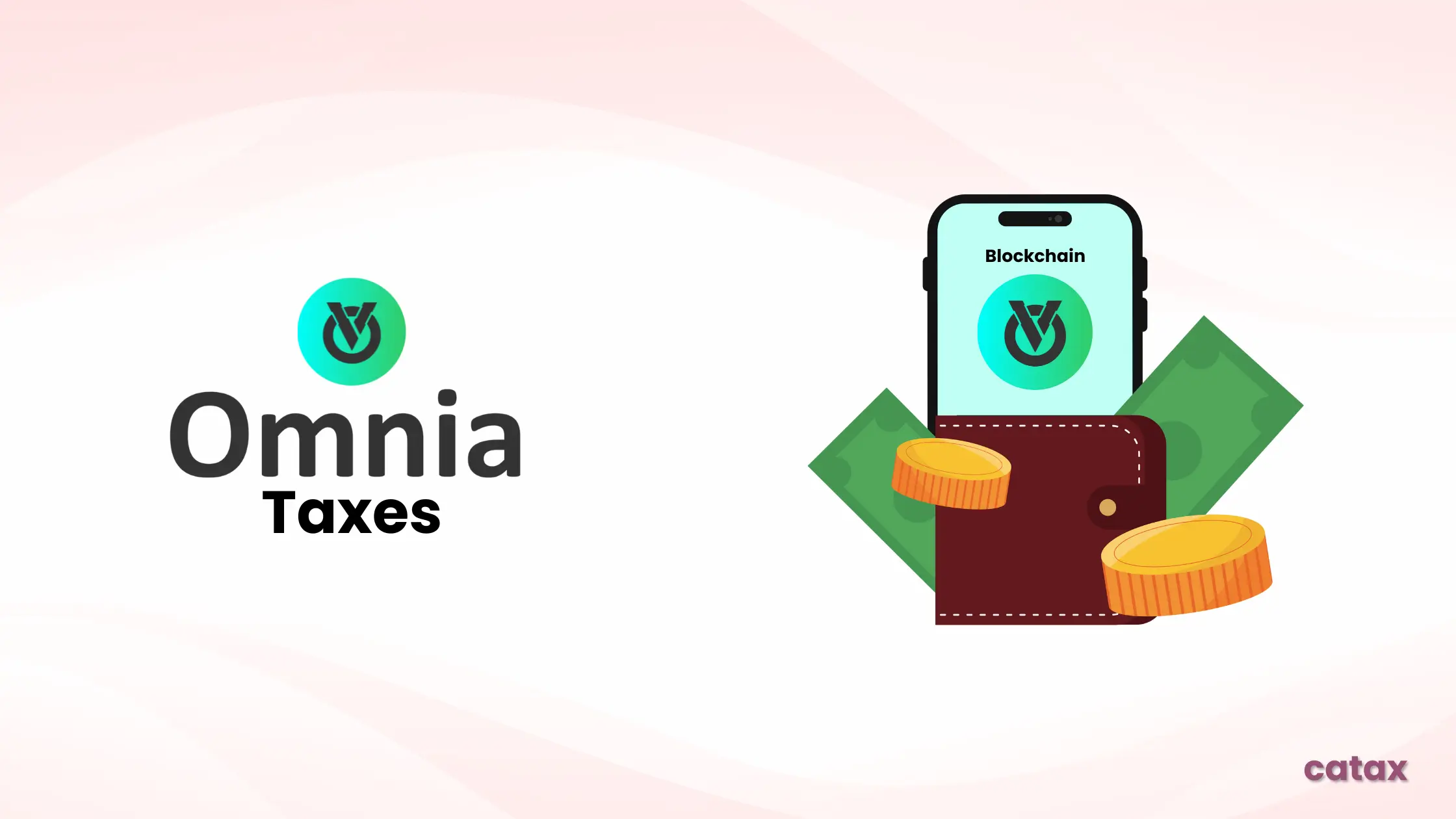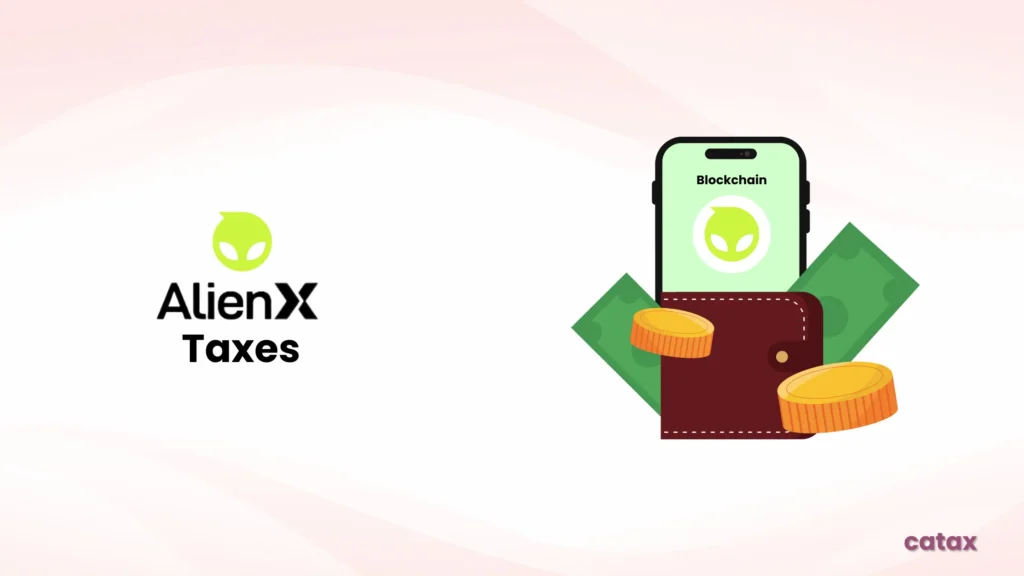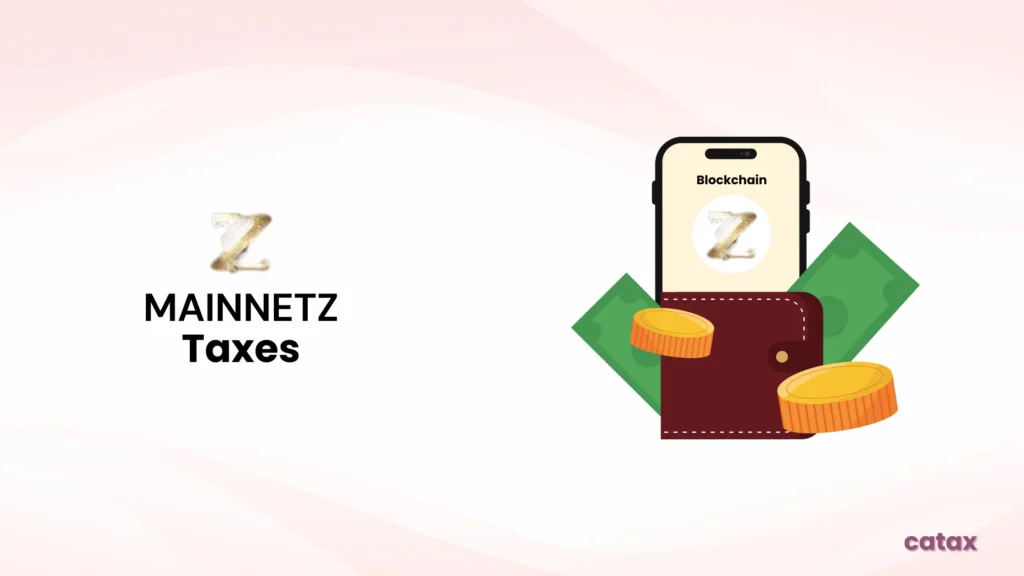Crypto tax laws vary across many countries, and Omnia (OMN) is no different. If you buy Omnia, sell it, trade it for another cryptocurrency, or even if you stake it, you could potentially have a tax obligation, depending on the jurisdiction in which you reside. You must understand how your country’s tax authority treats the activities you are engaged in with your crypto, so you manage your tax compliance and avoid any nasty surprise penalties.
This guide will provide you with everything you need to know on how Omnia is taxed in simple, easy-to-understand terms.

- How to Connect Your Omnia Wallet to Catax?
How to Connect Your Omnia Wallet to Catax?
To properly track your Omnia transactions and calculate your taxes, you can connect your wallet to Catax. It’s a straightforward process that ensures all your activity is captured automatically:
- Open your Omnia wallet or block explorer (such as MetaMask, Trust Wallet, Ledger, etc.).
- Locate your public wallet address and copy it.
On Catax:
- Log in to Catax and select your country.
- Choose Chain and then search for Omnia Wallet.
- Paste your public address and click Connect.
Catax will now sync your transactions automatically and help you calculate your tax obligations in real-time.
Calculate My Taxes ➤Are Omnia (OMN) Transactions Taxable?
Yes, most countries consider cryptocurrency transactions taxable. How Omnia transactions are taxed depends on how you use OMN:
When Do You Have to Pay Taxes on Omnia?
You may be required to pay taxes in the following scenarios:
- Sell Omnia (OMN) for profit: When you sell off your Omnia for more than you paid, you realize a capital gain, and most countries require you to pay tax on the profit.
- Trade OMN for other cryptocurrencies: Even if you do not change OMN into fiat currency (like USD or INR), trading it for another crypto usually is a taxable event.
- Use OMN to buy goods or services: If your Omnia goes up in value since you received it, spending it can result in capital gains tax on that increase.
- Earn OMN through staking: In many countries, tax laws treat staking rewards as income and you should report it for taxable income whenever you received it.
- Receive OMN as payment: If someone pays you in Omnia for work or service, you should treat that as regular income and report its value at the time of payment.
Because crypto tax rules vary from one country to another, it’s best to check with local regulations or use a tool like Catax that applies the right rules based on your location.
Can You Deduct Trading Fees and Other Costs?
This is frequently asked by Omnia users, and the answer is country dependent because tax law differs from country to country. Some countries do allow you to deduct expenses from your crypto transactions, such as:
- The exchange fees from singular trades when purchasing or selling OMN.
- The network fees incurred while transferring OMN between wallets.
However, not all of this exists in every country, and in some, only the purchase price (cost basis) is considered, and other fees are not deductible. To be sure, please check your local guidelines, or consult an accountant/tax professional.
How Is Omnia (OMN) Taxed Based on Holding Time?
The amount of tax you pay on profits from Omnia can vary based on how long you held the tokens:
- Short-term holdings: If you sell OMN within one year of buying it, you may have to pay taxes at a maximum rate, similar to income taxes because they are considered short-term in nature.
- Long-term holdings: If you hold OMN for more than one year, most countries will allow lower taxes on long-term capital gains.
- Flat rate countries: Some Countries do not recognize crypto holding periods, and they apply the same tax rate on every asset regardless of how long you hold it.
Understanding your country’s approach to crypto holding periods can help you decide when to sell to minimize taxes.
You can also check out our Country-Specific Guide for Crypto in Your country. This guide provides insights on regulations, tax implications, and compliance measures breifly explained for each country.
How Is Staking Income from Omnia Taxed?
Staking Omnia can earn you rewards, but those rewards are usually taxed in some way. There are generally two ways countries treat staking income:
- Taxed as income – Some countries treat staking rewards as taxable the moment you receive them. You will need to report them as income on your annual taxes.
- Taxed as capital gains – Some countries will wait to tax staking rewards until you actually sell or exchange the rewards. At that time, they will tax any profit realized on what you earned.
It is critical to know the tax implications about how your country interprets staking so you can report it properly. If your staking rewards are treated as income, you may owe taxes to your country even if you haven’t converted the rewards into fiat currency.
Can You Use Omnia Losses to Lower Your Taxes?
Yes, in many countries, if you sell OMN for less than what you paid, that loss can be used to reduce your tax bill. Here’s how losses are usually handled:
- Loss offsets: You can use losses from Omnia to cancel out profits from other crypto or even stocks.
- Loss carryforward: If you don’t have gains in the same year, some places let you carry losses forward to reduce future taxes.
- Limited or no deductions: A few countries don’t allow any deductions for crypto losses, so you’ll want to double-check your local rules.
Make sure you keep records of all your transactions so you can prove your losses if needed.
How to Stay Compliant with Omnia (OMN) Tax Regulations
As governments get stricter about crypto taxes, it’s important to follow the rules and stay up to date. Here’s what you should do to remain compliant:
- Learn how your country taxes Omnia: Is it treated as income, capital gains, or business income?
- Understand what costs you can deduct: Know whether trading fees, staking rewards, and security expenses are deductible.
- Keep accurate records: Track every Omnia transaction, including buying, selling, trading, staking, and spending.
- Use a crypto tax calculator: A platform like Catax can help you calculate and file taxes correctly.
- Talk to a tax professional: If you’re unsure about anything, it’s smart to consult a tax advisor familiar with crypto laws in your country.


